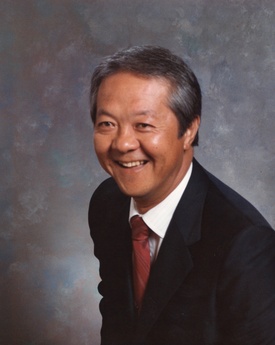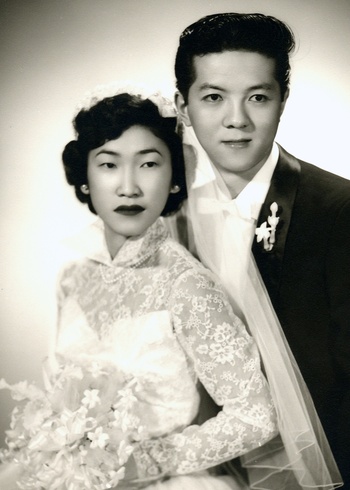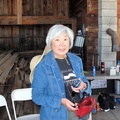Art (Isamu) Shibayama, civil rights champion of the Japanese Latin Americans and the recipient of the 2002 Fighting Spirit Award, died peacefully with family by his bedside on July 31, 2018 in San Jose, California. He was 88.
Born in Lima Peru in 1930, Art was 13 years old when he, along with his family, was kidnapped and transported to the United States aboard the USAT Cuba in 1944. Immediately upon their arrival in New Orleans, they were arrested by the US Immigration and Naturalization Service and transported by shuttered train to Crystal City, Texas where they were held hostage, to be used in prisoner of war exchanges with Japan.
Although Art and his immediate family managed to avoid being deported to Japan, his maternal grandparents, Kinzo and Misae Ishibashi, who were captured earlier and imprisoned at Camp Kenedy, were not spared. Years later, Art lamented, “After my grandfather and grandmother were sent away to Japan, I never saw them again.”
In 1946, a year after the war ended, Art’s family was finally released from captivity, only to find themselves stranded in the U.S. because Peru refused to take them back. Through the humanitarian efforts of attorney, Wayne Collins, they fought deportation to Japan and were allowed to remain in the U.S. on condition that they obtain the support of a sponsor. Seabrook Farms, a New Jersey vegetable processing plant eager to find a cheap source of labor, offered to become the sponsor of many Japanese Latin Americans. Art and his sister, Fusa, who were both adolescents at the time, worked to help support their family, thus forfeiting any opportunity to continue their education.
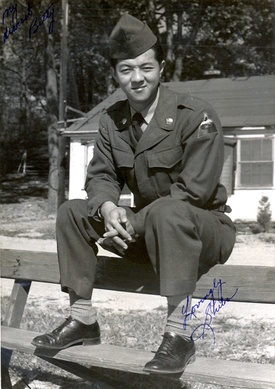
In 1949, while still fighting deportation orders, Art’s father, along with other Japanese Peruvians, decided to move to Chicago, where Art was drafted into the US Army in 1952. Still classified as an illegal alien, he was now expected to defend the country that had kidnapped his family, imprisoned him, and condemned him to a life as a stateless person.
When Shibayama was stationed in Germany, his superior officer applied for US citizenship on his behalf, but the US government declared him ineligible, claiming he had entered the United States illegally.
Upon his return to Chicago, Art learned that two members of his family had been permitted to apply for citizenship under a pardon. Deprived of the opportunity to obtain citizenship like the others, he traveled to Windsor, Ontario in order to gain legal status by re-entering the United States from Canada.
After being betrayed by Peru, the country of his birth, and then having been made to live as a stateless person in the United States for over a decade, Art finally achieved legal alien status in 1956. It wasn’t until twenty-eight years later, in 1972, that Art was finally allowed to become an American citizen.
Excluded from the settlement of the Civil Liberties Act of 1988, which granted redress to Japanese Americans, former Japanese Latin American internees revived their own struggle for redress with the founding of the “Campaign for Justice: Redress NOW for Japanese Latin Americans!” In 1999, when the Mochizuki v. United States 43 Fed. Cl. 97 lawsuit resulted in an out-of-court settlement for former Japanese Latin American internees still alive in 1988, Art rebuked the overture, saying “it was like a slap in the face.” He felt the offer was demeaning, and disingenuous—without regard for the scope and severity of the injuries sustained by him and his family. He said, “It’s not like we wanted to come here. We were forced to come here. What the US government did was unjust!”
In 2000, Art and his two brothers launched the Shibayama, et al. v. US lawsuit, for their discriminatory exclusion for redress under the Civil Rights Act of 1988. But Art’s lawsuit was dismissed on procedural grounds in federal claims court.
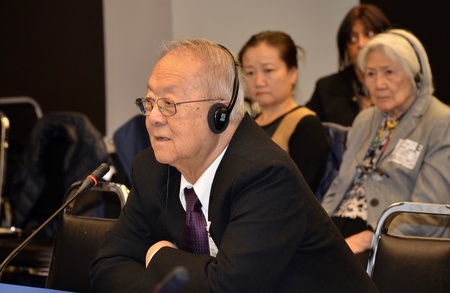
Unable to find justice in the US courts after four more lawsuits and two pieces of failed legislation, in 2003 Art and his two brothers filed Petition 434-03, Shibayama et al. v. United States with the Inter-American Commission on Human Rights, a body of the Organization of American States (OAS). This petition argued that crimes had occurred under the American Declaration of the Rights and Duties of Man, an international human rights accord.
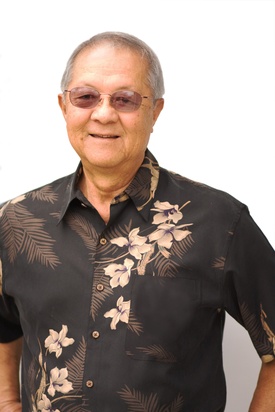
In March 2017, fourteen years following the submission of the Shibayama brothers’ petition, Art and his daughter, Bekki Shibayama, traveled to Washington, DC to testify before the Inter-American Commission on Human Rights. Bekki stated that after learning of her father’s kidnapping, “the words With Liberty and Justice for All that I recited in grade school every morning rang hollow…My father and his family had done nothing wrong. Their only supposed crime was that they were of Japanese descent.”
A ruling by the OAS Commission is still outstanding.
Art is predeceased by his parents Yuzo and Tatsue Shibayama, his siblings Fusa Sumimoto, Susan Hikida, and Kazuko Shibayama, He is survived by his wife Betty, and his two children Bekki and Brian, and by his brothers Kenbo, Tac, and George and his sister Rose Nishimura.
© 2018 Diana Cole


